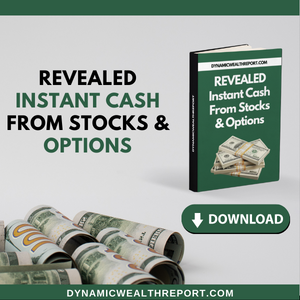The Market Is Down. Should I Change How I’m Investing?
Whether the market goes up or down, we’re never 100% certain about what caused it. However, we can make educated guesses based on factors and events that drive economic shocks.
Rising inflation rates not seen in 50 years, a war in Ukraine, supply chain disruptions, and the economic slowdown in China are a few of the events that potentially triggered the economy in 2022.
The markets in the past months have been alarming, to say the least. From S&P 500 performance (at its worst since 1932) to rising volatility, 2022 has not been a good year for investors.
Up until June 24th, the S&P had a total of 62 trading days where it closed at least 1% higher or lower than the previous, representing 52% of total trading days in 2022. For reference, in 2021, this number was 22%.
We recently entered a bear market, with the market dropping more than 20%. This means investors have higher levels of uncertainty and/or anxiety. The most important question you should ask yourself is, should I change how I invest through a tough economic environment?
Here are a couple of points to answer that question:
What Should You Do When Stock Market Volatility Increases?
First, stock markets go through long periods of decline from time to time, and it’s impossible to predict how long it will take for markets to recover. A bear market equals opportunity if you have a long-term perspective and mindset.
The 152-year history of U.S. market returns is flooded with bear markets; in every scenario, the market has eventually recovered. After all, if it hadn’t, we’d still be stuck in the Great Depression market crash!
As an investor, it’s common for you to feel the need to sell. Otherwise known as “panic-selling”. Others are more patient and try to find opportunities amid the panic.
Watching your investments decline in value can hurt. When the market falls, you might feel responsible for doing something about it. You worked hard for the money you invested and want to preserve what is left of it… but should you? Most of the time, a financial advisor like myself would say no.
Missing the Stock Market’s Best Days
We usually only want to sell after the market falls. By doing so, you run the risk of missing the market’s best days after the fall.
Panic-selling means you are giving up any long-term returns you were relying on… doesn’t that seem riskier than waiting out the turbulent times? Sometimes, by waiting, you can recover from the losses you might have incurred during a bear market. If you miss the market’s 10 best days each decade, your returns will be dramatically lower (see chart below).
On the other hand, the ideal scenario would be to avoid the 10 worst days. This data shows the amazing returns an investor would get if they correctly called the ten worst days of each decade. But do you know anyone who could call the market’s peaks and troughs with any regularity? I know I don’t, which emphasizes that staying invested is the better bet.
The Best Time to Invest
The two worst things investors can do are (1) buy high and (2) sell low. We don’t invest with the benefit of hindsight. We can only look forward. Somebody who tells you what you should have done six months ago provides no useful information. Deciding what to do in the future matters much more.
Historically, the best time to invest is when you feel the worst. Buying assets at marked-down prices and holding them for the long-term has provided the best returns.
An Example of the Benefits of Buying When Prices Fall
Consider this example: You add $500 to your 401k every two weeks. The fund you were buying cost $50 per share (you bought 10 shares). Now the price falls 20% to $40 per share. You can now buy 12.5 shares. If the fund returns to even – never a guarantee– your 10 shares will be worth $500. But your 12.5 shares will be worth $625. That’s a gain of $125.
If the asset value grows 7% per year for 10 years, it will roughly double in value. If you stopped investing during the downturn, you would have 10 shares worth $1,000. But if you bought when the shares were on “sale,” you would also have 12.5 shares worth $1,250.
You get larger gains by buying shares when prices fall. You would only have $1,000 if you didn’t invest through the downturn.
How Should We Invest?
While the financial media often promotes the idea of beating the market, few investors can do so consistently. Instead of investing to beat the stock market (usually measured by the S&P 500), we should invest to live our desired lifestyle both now and in retirement. Experiences matter, too. Trying to beat the market implies taking on more risk. If we take on more risk, we will likely do even worse than the market when it falls. Big losses can hurt our retirement outlook much more than losing out on some of the gains.
What Should Investors Do?
Against this backdrop, it’s important to focus on your process. Having a well-established process can help you have an action plan for when stock market volatility increases. It can also reduce the role emotions have on your investments.
For example, a well-thought-out plan might include projections on when and under what circumstances you would want to rebalance your portfolio. There are a variety of plans and solutions for accumulators (those who add money to their portfolio) and decumulators (those who regularly withdraw money from their portfolio).
If you have an investment account, keep adding money when the market falls. Think of it this way: if you don’t expect long-term gains from the stock market, you have no reason to invest. If you do, you want to keep investing through the downturn.
Market Volatility – The Bottom Line
It’s not easy buying when your fears and concerns are elevated. But if you believe the market will continue to deliver long-term gains, you will be happier in the end if you didn’t make material changes to your investing approach and/or process.
This post appeared at Apprise Wealth Management. It was contributed by Zoe Financial.
Category: Personal Finance






